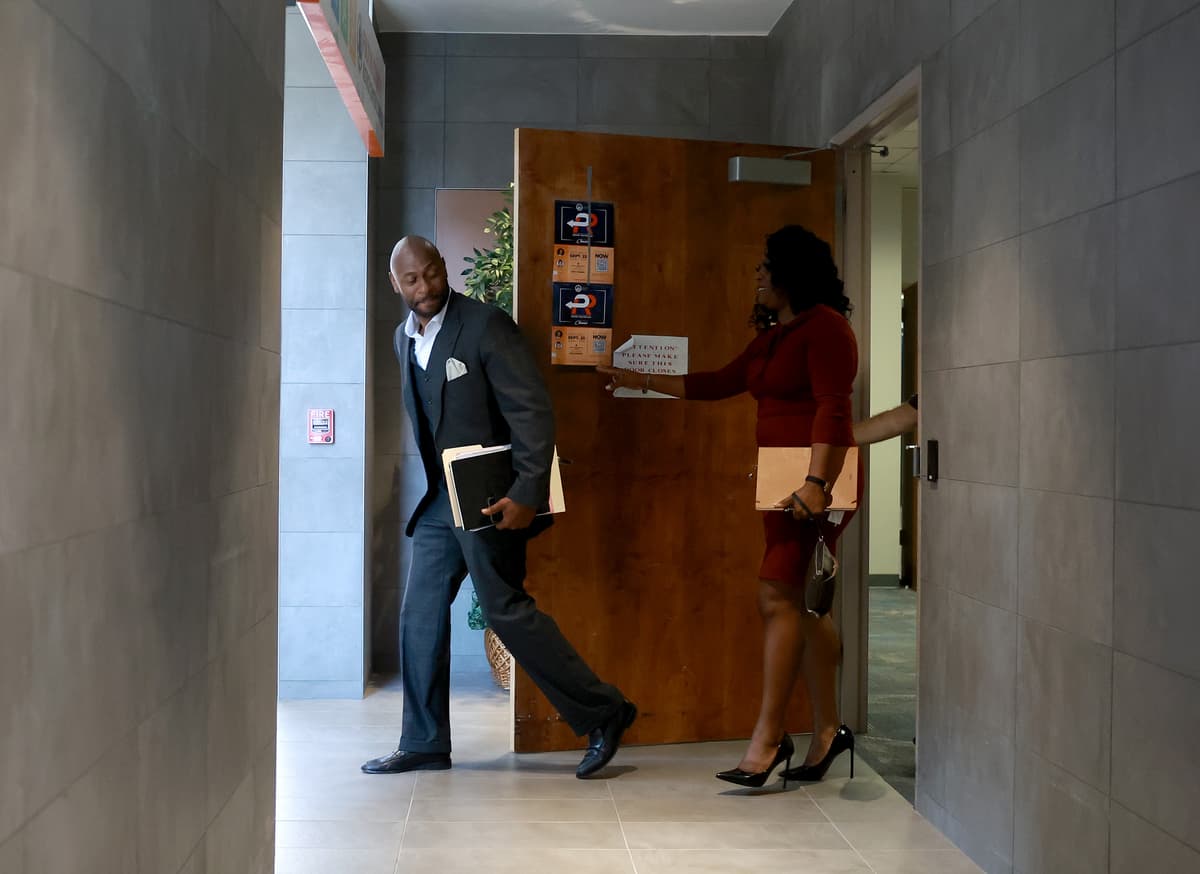Could Fani Willis’s ‘Extraordinarily Bad Judgment’ in Hiring ‘Boyfriend’ To Prosecute Trump Cost Her the Case?
One of the highest profile trials in American history looks to be taking on water before it is even ready for prime time, but blocking the district attorney from the case would be a heavy lift.

Only one of the 19 defendants — Michael Roman — in the racketeering case brought by the district attorney of Fulton County, Fani Willis, has asked for her to be disqualified, but others could be readying to rush in. Are they, though, pinning their hopes on a tempest in a teapot?
The Sun spoke to an attorney, Harvey Silverglate, for one of those defendants, the lawyer John Eastman. He tells us that Ms. Willis, who is accused of appointing a married paramour, Nathan Wade, as special prosecutor to try the case, has “exercised extraordinarily bad judgment.”
Mr. Silverglate adds that this staffing decision — Mr. Wade, who has never tried a felony case in Georgia, has been paid more than $600,000 thus far — “verges on an ethical violation.” While what “happens in the bedroom is a private matter,” the literate lawyer quotes the Bard to the effect that “Heavy is the head that wears the crown.”
Another veteran litigator, Alan Dershowitz, sounds a note of caution. The Sun columnist says that while the kind of behavior Mr. Roman alleges — hiring an unqualified lover to try the case and then sharing the fees with him — might count as unseemly, it is hardly grounds to disqualify the prosecutor or dismiss the charges. Instead, he reckons that an ethics complaint to Georgia’s bar association could be the proper recourse.
Mr. Dershowitz explains that for a judge to consider the remedies Mr. Roman seeks — disqualification of Mr. Wade and Ms. Willis and dismissal of the charges they brought — he would have to find the presence of “prejudice,” meaning that the defendant was injured or harmed by the lapse. Mr. Roman, who is charged with seven felonies, contends that Mr. Wade was defectively appointed.
Mr. Roman, who served as a director of election day operations for Mr. Trump’s campaign in 2020, faces two hurdles in parlaying the alleged “personal, romantic relationship” between Ms. Willis and Mr. Wade into an escape from legal jeopardy. First, he needs proof of such a relationship, and those details are under seal pursuant to a court order in Mr. Wade’s divorce case.
The Sun spoke to a family law attorney, Jody Miller, at Cobb County, the same jurisdiction that is hosting Mr. Wade’s divorce proceedings. She tells us that “sealing is not a very common practice” and that courts “do not do so lightly,” suggesting that an effort to challenge that status — to break the seal — could be arduous. Mr. Roman’s attorney, Ashleigh Merchant, tells the Atlanta Journal-Constitution that she plans to do just that.
Even if Ms. Merchant manages to bring the details of Ms. Willis’s relationship with Mr. Wade into the public eye, she still will be required to demonstrate that the liaison harmed her client. Her motion alleges that Ms. Willis’s indictment is “invalid and unconstitutional” because she “never had legal authority to appoint the special prosecutor,” resulting in a menu of charges riddled with “structural errors and irreparable defects.”
Ms. Merchant’s case for her client turns on the allegation that Ms. Willis never sought “Fulton County’s approval prior to appointing the special prosecutor” — Mr. Wade — “to work on the case.” Anticipating the objection that such an omission could be written off as a “mere technicality,” she instead insists that it is a “prerequisite for any special prosecutor’s work on a case.”
Adopting the prose of a muckraking journalist or fiction writer, Ms. Merchant asserts that this departure from procedure was no mere “oversight” and reports that “digging deeper the potential reason” for the error is the identity of the “specific person” Ms. Willis chose for one of the highest profile trials in American history — her alleged boyfriend, the otherwise wedded Mr. Wade.

